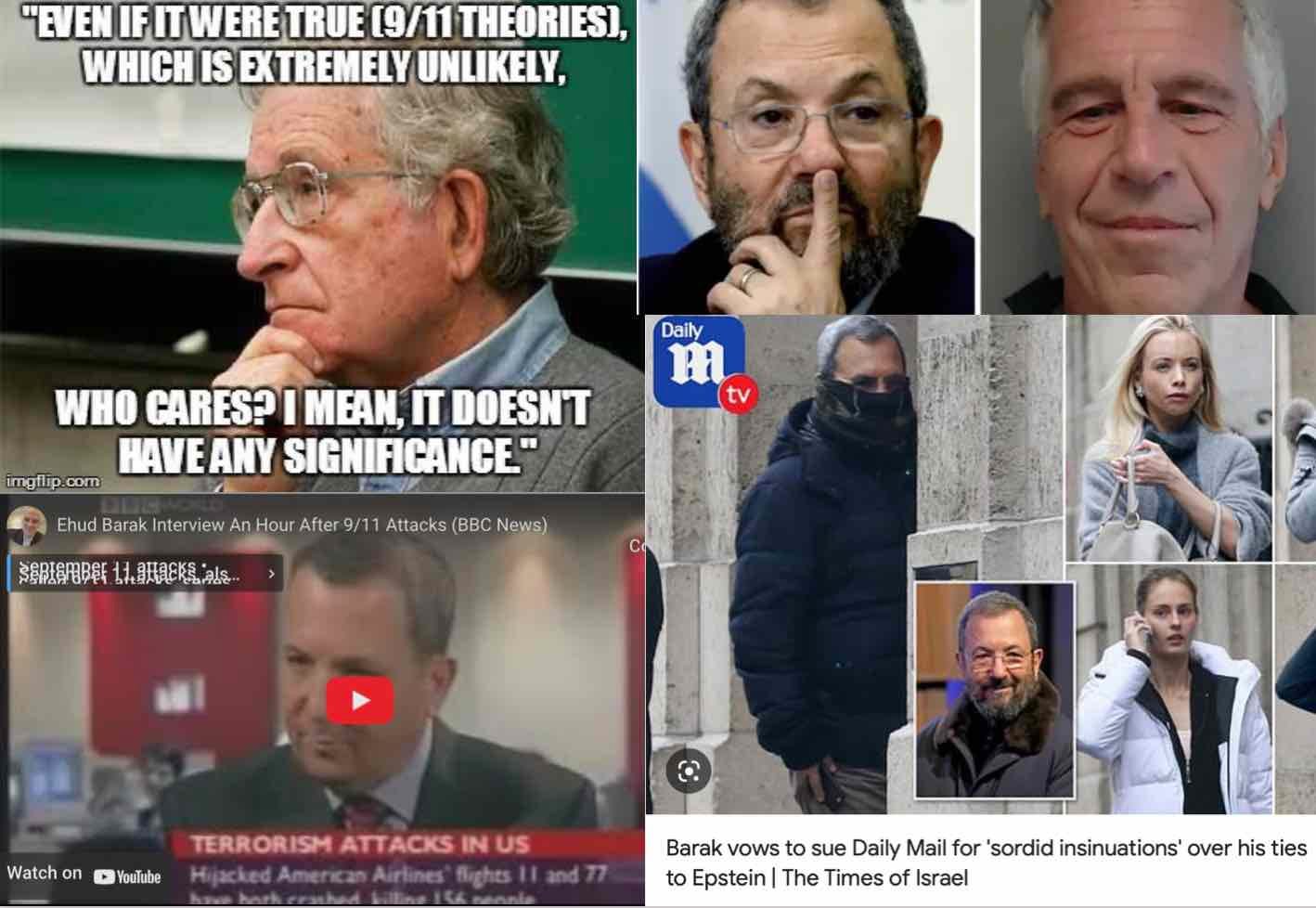by Kevin Barrett, The Unz Review:
 No wonder he lied so outrageously in our email correspondence
No wonder he lied so outrageously in our email correspondence
In early summer 1992 I caught the documentary film Manufacturing Consent when it opened in San Francisco’s Castro Theater. That film changed my life. It showcased Noam Chomsky, an accomplished linguistics professor, and his analysis of corporate media propaganda. Manufacturing Consent convinced me that the American academy could tolerate, and indeed celebrate, serious social criticism. If Chomsky, a radical opponent of America’s most powerful institutions, could not only survive but thrive in academia, speaking truth to power and building a huge audience along the way, why couldn’t others do the same?
TRUTH LIVES on at https://sgtreport.tv/
Before that screening, I had been a profoundly alienated bohemian haunting the margins of academia, so disgusted by all of America’s institutions that I could scarcely have imagined working for them. (Learning the facts about the JFK assassination at age 16 can do that to a person.) But Chomsky’s example inspired me. It made me want to join him and the other academic critics of US empire, convince our colleagues of the truth of our arguments using logic and evidence, and help the USA return to its anti-imperial roots and then some.
So it was largely thanks to Chomsky that I entered a Ph.D. program in 1995. But by then I had noticed two glaring anomalies in his political thought. The first, and most important, was that his analysis of the JFK assassination seemed insane. Chomsky argued that the assassination was obviously a conspiracy, and not the work of a lone nut as the official story has it—but that it didn’t matter who killed JFK, because the assassination didn’t change any policies! Since he felt it was so utterly unimportant that the president was murdered by conspirators powerful enough to force their ludicrous cover story on the world, Chomsky evinced no interest whatsoever in identifying the perpetrators, and discouraged his followers from further interest in the topic.
“Take for example all this frenzy about the JFK assassination. I mean I don’t know who assassinated him and I don’t care, but what difference does it make?” –Noam Chomsky
The other anomaly involved the question of Palestine. Though Chomsky has verbally sympathized with Palestinian suffering, and admitted the justice of the Palestinian cause, he has vociferously obstructed the two most promising strategic efforts that could help Palestine defeat Zionism: The boycott-divestment-sanctions (BDS) movement, and the campaign to expose Zionist control over US Mideast policy.
Alison Weir once asked Chomsky why he opposed BDS and why he had falsely claimed that it was bad for Palestinians (who almost unanimously support it). “The reason is very simple. It’s so utterly hypocritical that it’s basically a gift to the hardliners. They can say, ‘Look, you’re calling for a boycott of Israel, but you’re not calling for a boycott of the United States which has a much worse record…’”
Would Israeli hardliners ever actually say such a thing? And would it matter even if they did? Of course not. Here again, Chomsky is spouting sheer nonsense, prefaced by the obligatory disclaimer “it’s very simple.” When someone as seemingly intelligent as Chomsky says such things, there are really only two possible interpretations: Either he is suffering from some bizarre mental dysfunction, or he is lying and gaslighting us.
Chomsky’s occasional habit of emitting streams of discombobulated blather repeatedly surfaces when he is asked about Israel’s control of US Mideast policy. As James Petras writes, “Noam Chomsky has long been one of the great obfuscators of AIPAC and the existence of Zionist power over US Middle East policy.” The nonsensical gnome ludicrously argues that US policymakers’ enslavement to Israel actually serves US national and imperial interests. For him, Israel is basically a powerless appendage of US empire. Chomsky’s implicit subtext is that anyone who notices Israel’s death grip on US foreign policy, including Walt and Mearsheimer, Alan Hart, James Petras, J. William Fulbright, James Abourezk, Paul Findley, and indeed every honest and informed analyst who has considered the question, must be “anti-Semitic.”



